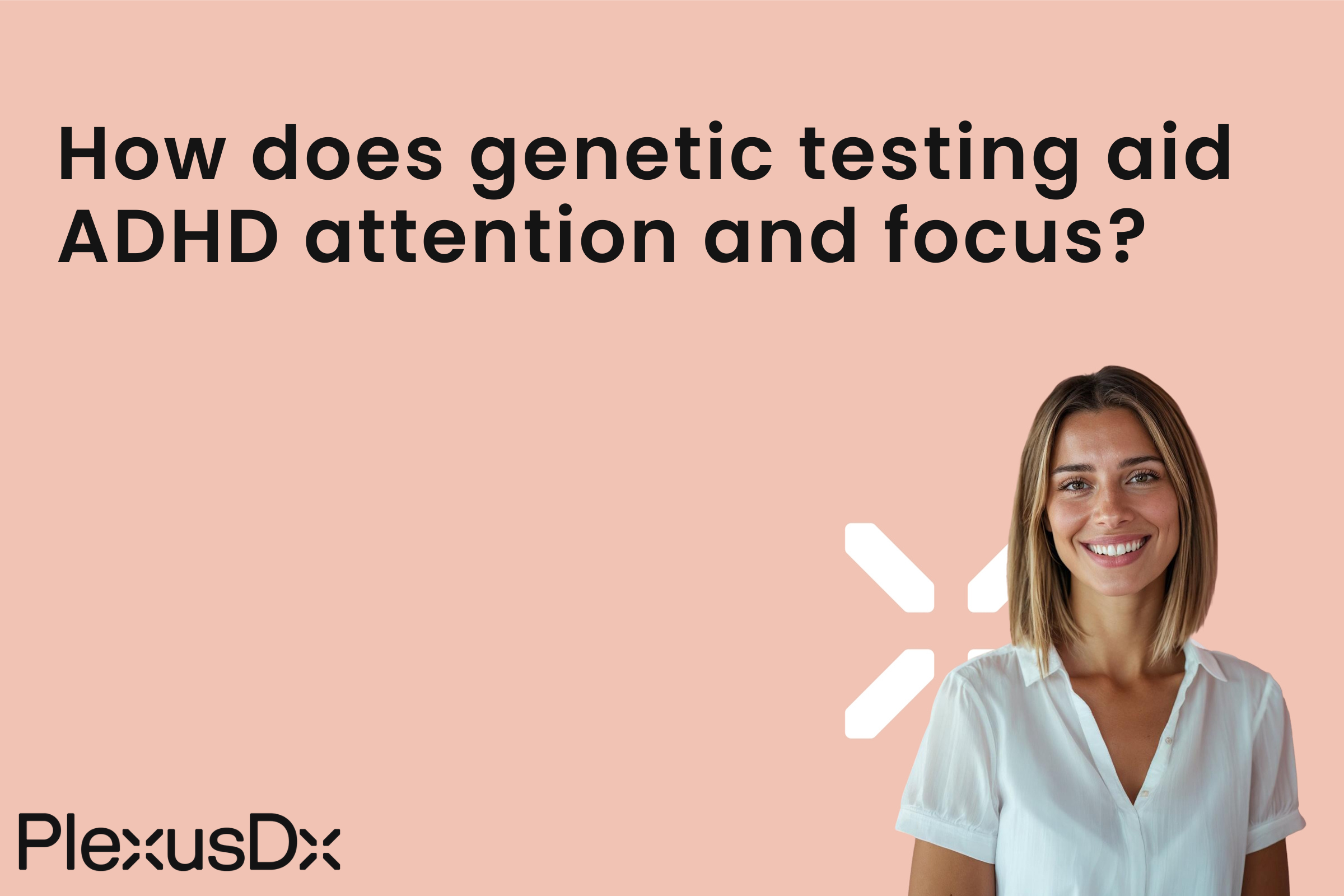Living with ADHD
Does constant distraction and racing thoughts make it hard for you to stay focused on your tasks? If so, you're not alone. Attention-deficit/hyperactivity disorder (ADHD) affects millions of people from different age groups by diminishing their ability to sustain focus and perform across multiple aspects of their lives. Genetic factors have considerable influence over your attention span and ability to concentrate. Studying how ADHD connects with genetic elements reveals ways to help people boost their attention skills and elevate their life quality through understanding their genetic makeup.
Understanding ADHD
ADHD continues to affect children who struggle with attention in school and those who exhibit hyperactive behavior patterns. The condition of ADHD continues past childhood since it affects a substantial adult population. Six million four hundred thousand children between four and seventeen years old have been diagnosed with ADHD in America while about four percent of the adult population shares this diagnosis. This condition affects many aspects of life from academic performance to social relationships and basic daily activity management. People with ADHD face various challenges that affect multiple areas beyond their capacity to focus on specific tasks. People with ADHD face ongoing relationship issues and academic as well as occupational struggles while developing problems with substance abuse and financial instability. Researchers have yet to establish the precise cause of ADHD yet genetic factors seem to account for up to 80% of the development of the disorder in certain individuals. Research demonstrates that ADHD arises from genetic factors which modify neurotransmitter activities such as dopamine and serotonin in addition to brain cell maturation processes. Recent genetic testing advancements demonstrate the relationship between human genetic makeup and cognitive functions including attention span. Through the discovery of particular genetic variants individuals can learn about the influence their DNA makeup has on their ability to focus. Your genetic makeup affects how you respond to stimulants like caffeine and determines how sleep quality influences your attention span.
Taking Control of Your Attention
Personalized focus improvement suggestions derived from your genetic profile can lead to significant improvements in attention management. By studying genetic factors related to attention issues you can tailor your approach to managing distractions for improved brain performance. By understanding your genetic profile you will be able to actively enhance your focus through lifestyle modifications, dietary adjustments and improved sleep strategies.
In Conclusion
ADHD is a multifaceted condition which continuously impacts individuals throughout their lives by causing disruptions in daily routines and reducing overall life satisfaction. Research into genetic factors affecting attention disorders like ADHD helps us create personalized treatments which improve concentration and brain function. Take command of your attention levels by investigating genetic influences through PlexusDx's Precision Health & Wellness tests. Visit PlexusDx.com or check Amazon and Walmart to find out how genetic blueprint analysis helps achieve enhanced attention and reach maximum potential.

Share:
Why do some people cope with stress better than others?
How does genetics influence openness to experience?